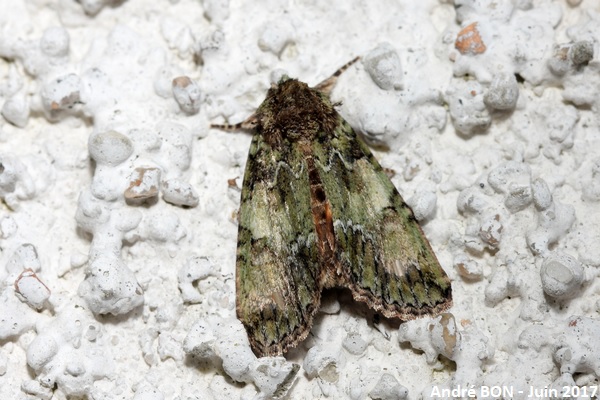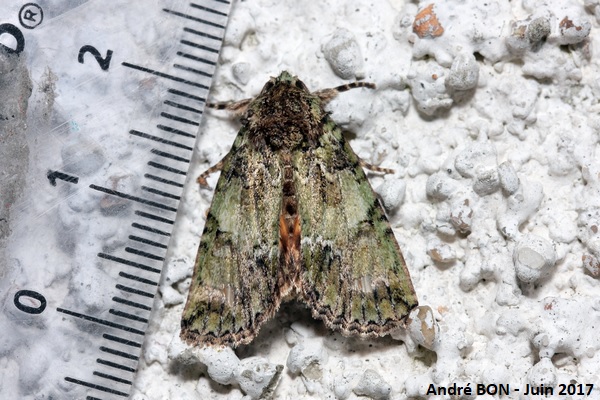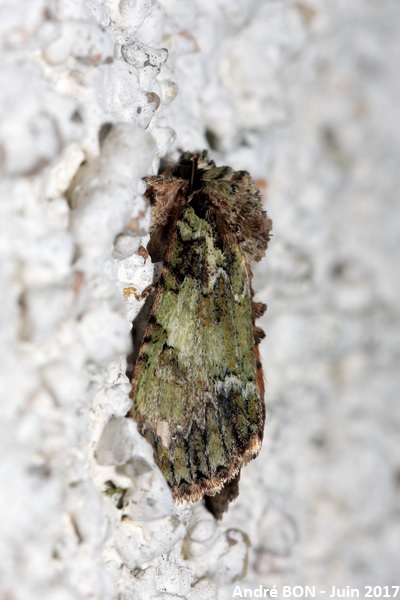


| Guernsey underwing (Polyphaenis sericata (Esper, 1787)) |



|
|
Scientific name: Polyphaenis sericata (Esper, 1787) Common name: Guernsey underwing French name: Noctuelle du Camérisier, Noctuelle de Chèvrefeuille. Order: Lepidoptera Suborder: Heterocera Family: Noctuidae Subfamily: Noctuinae Wingspan: 38-43 mm. Biotope: Wooden areas close to river banks, woodland edges, clearings. Geographic area: Southern Europe and Western Asia, expanding northwards (actual northern limit of the range close to north of France). Missing in the British mainland but observed on some Channel Islands such as Guernsey (origin of the common name). Flight time: June to August. Number of generations : 1 Caterpillar: Brownish with a black dorsal streak on each segment. Host plant: Privets (Ligustrum), Honeysuckles (Lonicera) including Blue Honeysuckles (Lonicera caerulea) and other shrubs. |
The Guernsey underwing shows green fore wings with darker greenish brown patches. They are crossed by two thin white zigzag lines, an antemedian line and a postmedian line. The hindwings are orange in colour with a broad blackish-brown marginal band. The Guernsey underwing is attracted to light. It over winters as a caterpillar. |
| [To know more about the Guernsey underwing] [Next picture] [Top] |

|
This Guernsey underwing, like many other moths, used the northern wall of my house for its diurnal rest. It was therefore entitled to a short photo session while trying not to disturb it too much. |
| [To know more about the Guernsey underwing] [Next picture] [Previous picture] [Top] |

|
The perfect immobility of this moth allowed me to approach a graduated ruler to measure the length of the wing. You can guess the orange hind wings. |
| [To know more about the Guernsey underwing] [Previous picture] [Top] |

|
Side view. |